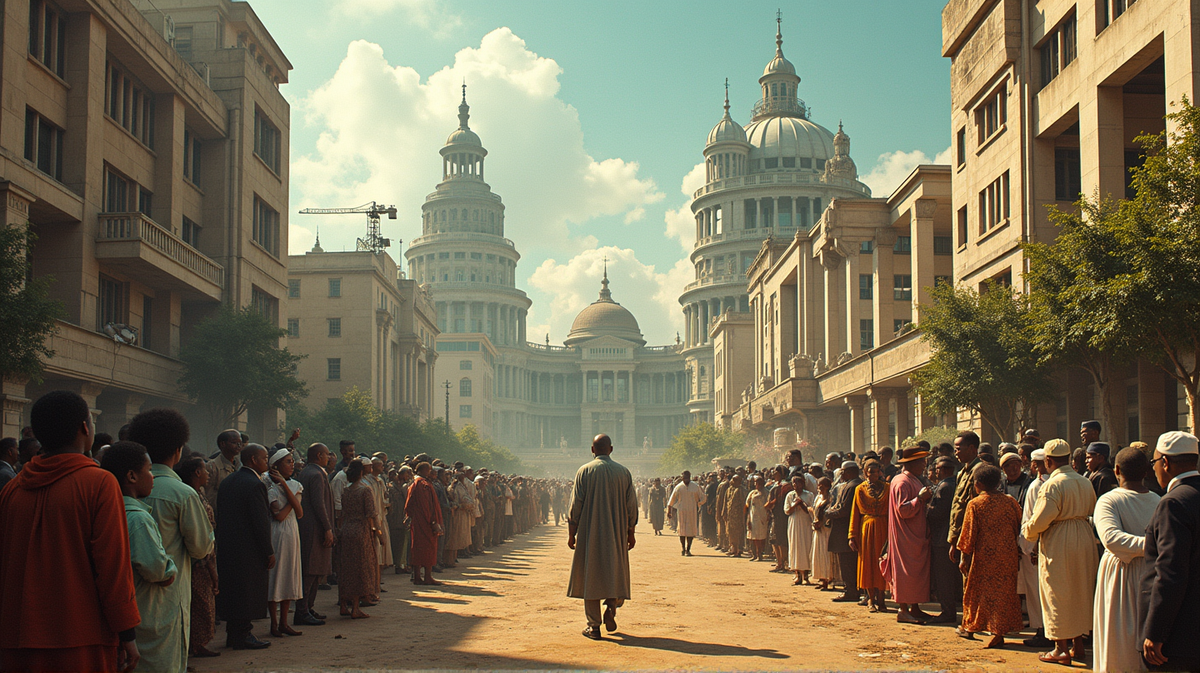Ganduje's Controversial Vision for Nigeria: A Wake-Up Call for True Democracy
Abdullahi Ganduje's call for a one-party state in Nigeria sparks a national dialogue on the true essence of democracy, highlighting historical lessons of authoritarian pitfalls.

Abdullahi Ganduje, the National Chairman of the All Progressives Congress (APC), has ignited widespread debate within Nigeria’s political circles. His recent advocacy for a one-party state paints a façade of peace but reveals a potential descent into authoritarianism. Through a historical lens, this notion challenges the fabric of Nigeria’s democracy, one that has been woven with tenacity since the cessation of military rule in 1999.
The Allure of One-Party Rule
Ganduje posits that a centralized party system could provide stability and harmony across Nigeria’s multifaceted socio-political landscape. However, this viewpoint glosses over the dangers inherent in one-party regimes as observed globally. Countries like Mobutu’s Zaire and Mugabe’s Zimbabwe serve as poignant reminders that such systems often devolve into corruption and economic stagnation. According to Opinion Nigeria, democratic diversity is vital for Nigeria’s progress.
Learning from History’s Mistakes
Abdullahi Ganduje’s assertions draw parallels with past authoritarian regimes, which have masqueraded their hegemony as unity. Although he envisions peace through homogeny, history tells us that true stability flourishes in nations where leaders are held accountable through vibrant political contests. Nigeria, with its tapestry of cultures and histories, deserves governance that reflects its pluralistic identity.
Realities of Power Monopoly
Ganduje’s statement emerges not from concern for Nigeria’s welfare, but rather the fear of diminishing power within the APC. His call does not foster unification; it poses a grave threat to democratic values, trampling the very rights and resilience fought for by many. Events between 1999 and 2015 when the People’s Democratic Party reigned in office without interruption, highlight the necessity of opposition for balanced governance.
Upholding a Multiparty System
The heart of democracy beats with choice—exchanging ineffective leadership for fresh alternatives. The elimination of political plurality threatens this core principle, reducing elections to empty rituals. In contrast, nations like the United States, the United Kingdom, Germany, and India demonstrate how multiparty participation enriches accountability and fosters transparency.
Embracing Democratic Diversity
Nigerians must decisively reject the mirage of a one-party solution and advocate for the strengthening of institutions that support democratic governance. Ensuring fair elections and press freedom contributes to a thriving power ecosystem where no single entity holds absolute sway. The future of Nigeria is not written in isolation but in a concert of voices and perspectives that celebrate democracy’s true spirit.
Advocates like Jeff Okoroafor champion the indispensable role of choice in securing Nigeria’s democratic legitimacy. By rallying against the allure of autocracy and embracing competition, Nigerians can redefine their political destiny—one rooted in inclusivity and resilience.
Let the call for genuine democracy resonate across Nigeria, affirming that the path to national prosperity lies in the people’s power to choose.
Jeff Okoroafor is a social accountability advocate passionate about governance, accountability, and social justice in West Africa.





